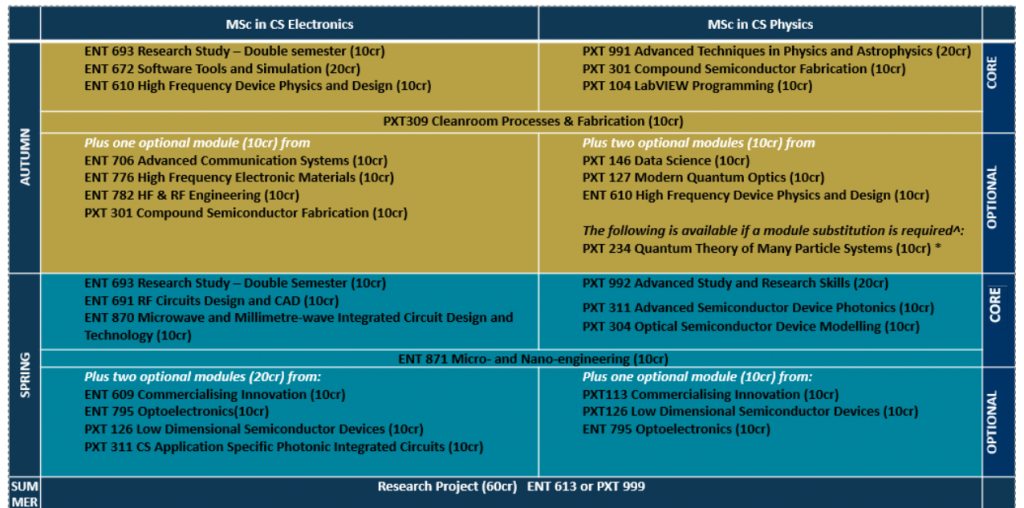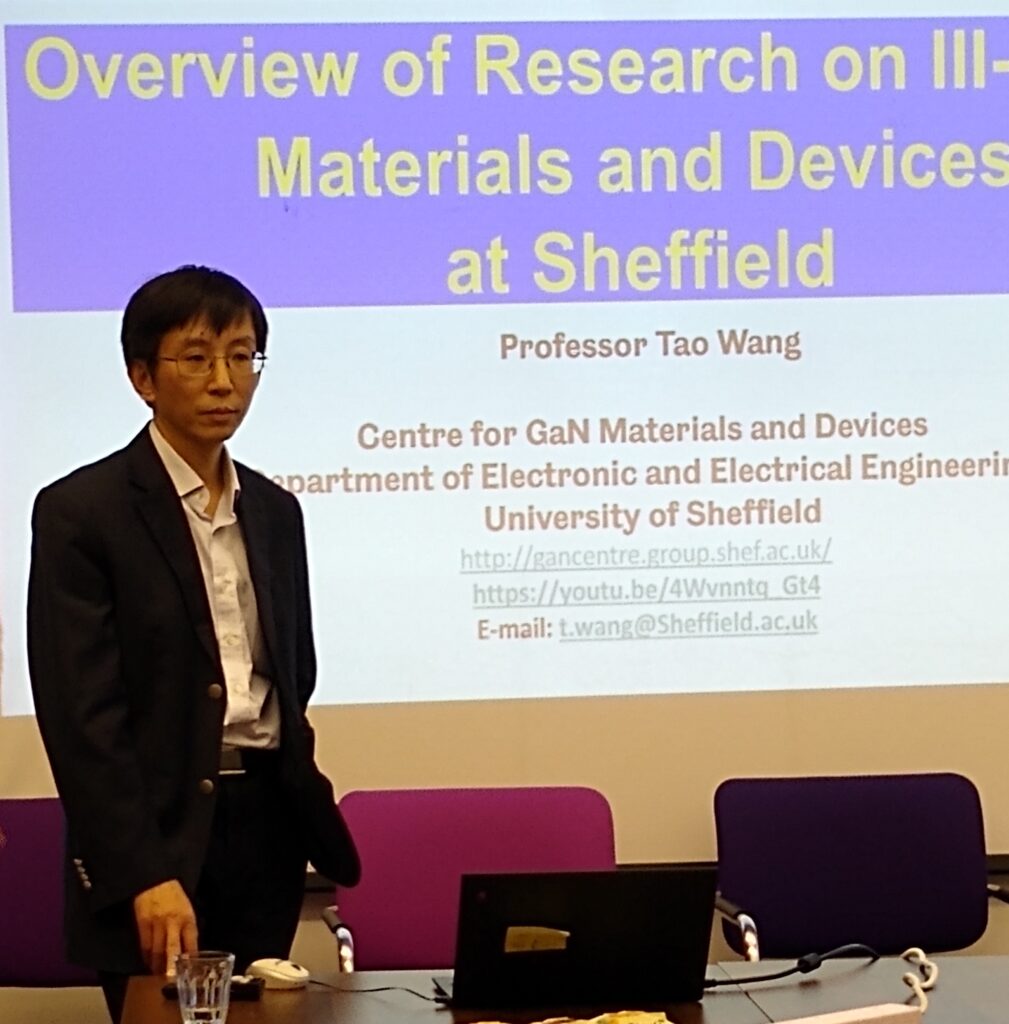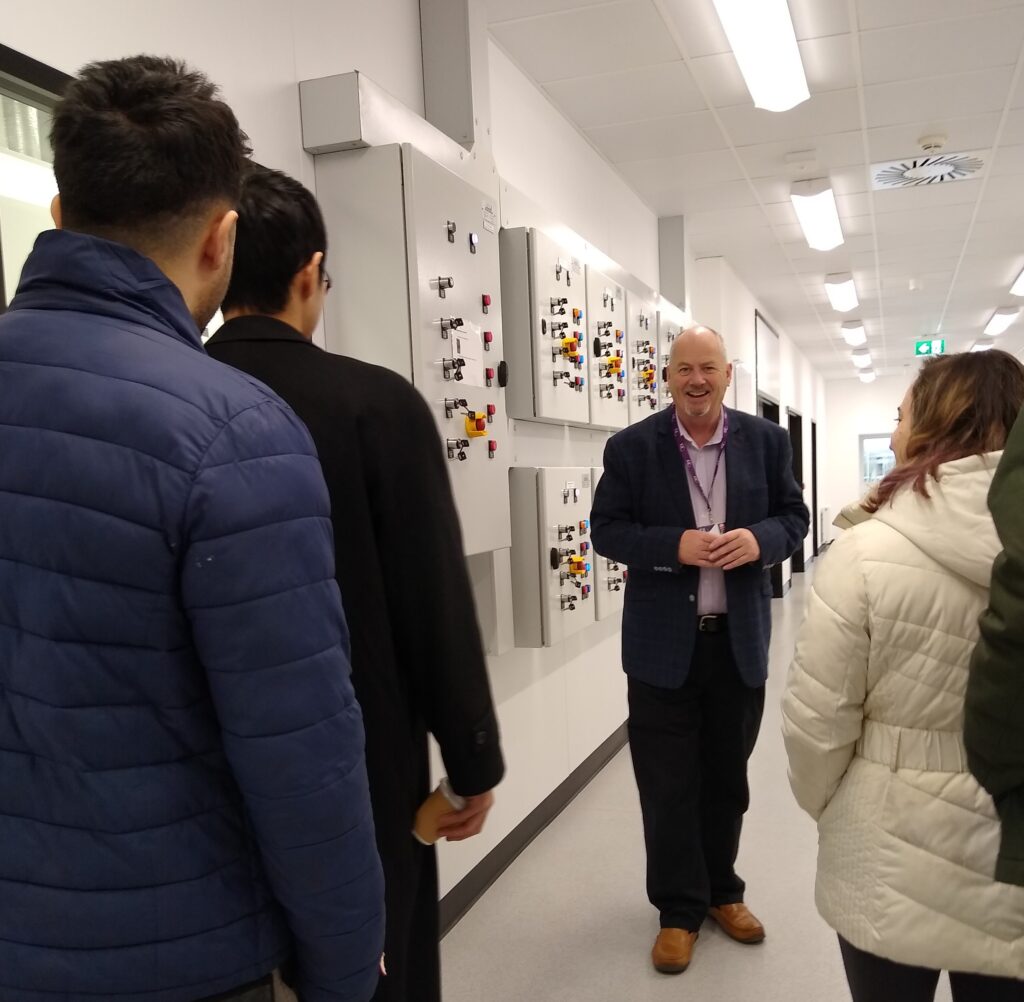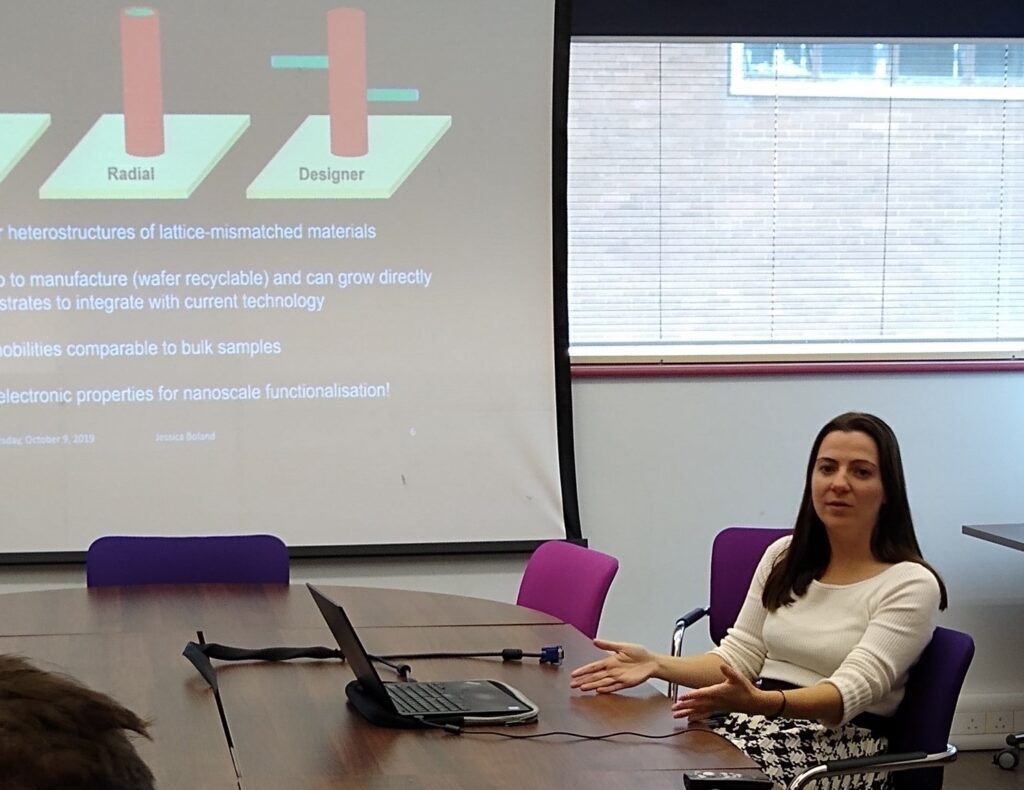You will undertake modules from an MSc programme at Cardiff University focused on compound semiconductors, either in Physics or Electronics. This will include a significant practical component including relevant software and cleanroom training. If you complete all requirements, you will be awarded the MSc.
Note that the module options and choices for CDT students vary slightly from the ‘stand-alone’ MSc in Compound Semiconductors offered to non-CDT students. CDT students undertake a module in Cleanroom Fabrication Processes and Techniques, which is a unique offering for them and not available to the other MSc students. Certain core modules are mandated, which reduces slightly the number of optional modules that can be chosen, but we also allow an element of module selection across the Electronics and Physics MScs to broaden the choice. The current structure (subject to annual review) is:

CDT students also have the opportunity to attend an expenses-paid UK semiconductor conference. You are assigned an academic mentor to develop your own personal development plan, which will be updated throughout the PhD, and a peer-group mentor from one of the higher cohorts to make sure you settle in and feel comfortable in the new environment.
PhD project selection
During the first year, you will develop your PhD Project through an iterative process. PhD projects are proposed by CDT supervisors at the four universities and provided in a catalogue to students. Students submit their projects in order of preference, according to guidance provided annually*. Students meet with supervisors offering the projects, along with the second supervisor and industrial partner where relevant. The supervisor provides feedback to the Management Board, which allocates the projects with due consideration to student and supervisor preferences, utilisation of industrial funding and the balance of awards between University partners. Over the life of the CDT, a minimum of 10 students will be based at each of Manchester, Sheffield and UCL for their PhD project, and a minimum of 20 will be based at Cardiff. Each of the universities have provided additional awards to cover the difference between Home and International students’ fees in proportion to their expected intakes.
*note that a small number of research projects, due to issues of national security, may not be available to International students from certain countries.
Activities
You will participate in cohort activities, including weekly tutorials, a guest lecture series, a Journal Club, and training in project management, responsible research and innovation, and intellectual property rights and commercialisation.



Guest Speakers and Visits
A programme of guest speakers from industry and universities will cover specific CS topics such as large area manufacturing, Inductively Coupled Plasma Processing, Metal- Organic Chemical Vapour Deposition (MOCVD) and Molecular Beam Epitaxy (MBE), RF techniques, Lithography, life-time testing of devices, and design software tools. You will also have the opportunity to visit the facilities of our partners, including Nexperia and the IQE ‘Megafoundry’.
Journal Club
You will take turns with your colleagues to summarise interesting and technically strong journal articles for the rest of the cohort, which will allow you to practice the important skills of constructively criticising published literature while learning how to produce higher standard academic publications.